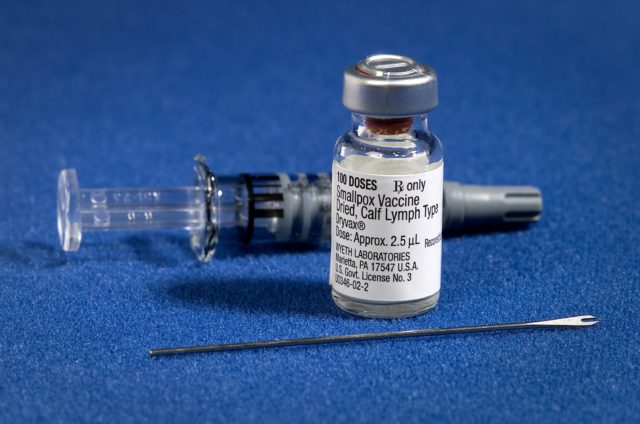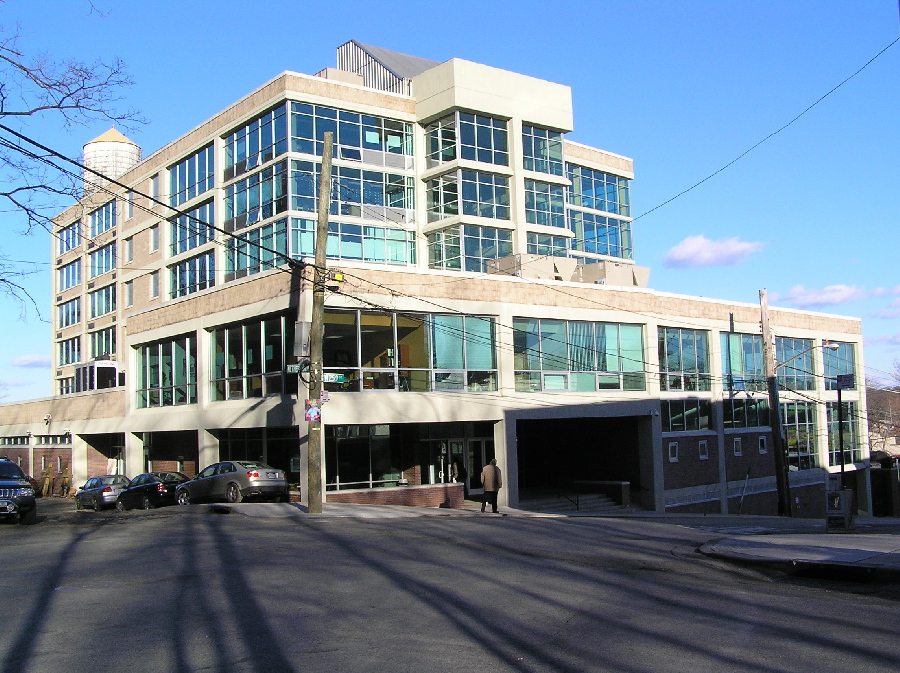Vaccines, Hysteria, and Rabbinic Responsibility: A Plea from the Trenches
We are living in the midst of a wave of hysteria in which the need for childhood vaccinations is questioned or denied.[1] This is not the first such wave. There have been cases of mass hysteria in virtually every country and every society, from Malaysia to Kosovo and London to Mexico City.[2] In 1962 in Tanzania it was an outbreak of laughing;[3] in 1983 in the West Bank it was an outbreak of fainting.[4] In the late seventeenth century in colonial Massachusetts there were the Salem witch hunts; two-hundred people – the vast majority women – were accused of serving the devil. Before it was over, nineteen were hanged, and one was stoned to death.[5] In the mid-twentieth century a wave of anti-communist hysteria swept this country, culminating in the McCarthy Senate hearings.[6]
Like any complex sociological phenomenon, there are many factors that created what has become a de facto anti-vaccine movement.[7] These include a perceived lack of knowledge of the severity of the illness, fear of needles or the pain of vaccination, a distrust of the information produced by governments, and a belief that vaccines are not effective or have dangerous side effects.[8] Since it first began in the 1990s, it has swept across the US, Europe, and the Middle East. In France over 40% of the population believe that vaccines are not safe.[9] A quarter of Greeks and Ukrainians are hostile. And characteristics of the deniers vary between countries: women in Hungary are more likely than males to believe that vaccines are effective, but in the Czech Republic, Germany, and Italy the reverse is true.[10]
Anti-vaccination hysteria is also present among a small but vocal number of Orthodox Jews.[11] Among the most widely reported anti-vaccination declarations is that of Rabbi Shmuel Kamenetzky, Rosh Yeshiva of the Talmudical Academy of Philadelphia. “I see vaccinations as the problem” said Rabbi Kamenetzky, who is a member of the Moetzes Gedolei HaTorah,[12] the rabbinical board of Agudath Israel. “It’s a hoax. Even the Salk vaccine [against polio] is a hoax. It is just big business.”[13] In November 2018 the Rosh Yeshiva’s wife, Temi, led a teleconference in which she compared the German company that produces the MMR vaccine to Amalek, the ancient foe of the Jewish people.[14] An anonymous group in Lakewood has distributed an eighteen-page color brochure encouraging parents to refrain from vaccinating their children.[15] More recently, and in a far more subtle and nuanced way, the Orthodox Union issued a hesitant statement about the importance of childhood vaccinations. We will return to that later.
As a first step to combating this hysteria, rabbis of every synagogue and heads of every Jewish school must issue an unambiguous and unequivocal statement, declaring that only children who are vaccinated will be allowed to attend.[16] The lives of our children depend on it.
The death rates from common infectious diseases
At the beginning of this century measles killed over 550,000 children worldwide. That number has dropped by 84%. In the US there were about 500 measles deaths each year before the introduction of the vaccine. There hasn’t been a reported death from the disease since 2015.[17] But in 2018 almost every region in the world experienced an increase in cases of measles. In Europe the number of confirmed cases rose by over 60% compared with the previous year.[18] In the US this year, the number of confirmed cases almost doubled; so far there have been 15 measles outbreaks. Parts of Seattle now have lower vaccination rates than Rwanda.[19] In Europe measles killed at least 37 people in the first six month of this year. And in Israel the incidence of measles (per million population) increased from 1.3 to over 62, and the number of actual cases increased from 15 last year to at least 526 this year.[20] This year in Jerusalem an unvaccinated toddler died of measles. Hers was the first measles death there in 15 years.
Anti-vaccination and conspiratorial thinking
Why is this happening? One clue is from a recently published paper from an Australian group which examined the psychological roots of anti-vaccination attitudes among over 5,000 respondents in twenty-four countries.[21] Its results highlight the correlation between (among other things) conspiratorial thinking and holding an anti-vaccination position. Perhaps that is no surprise, but most alarming is the finding that levels of education had no such correlation. “The particularly strong role of conspiratorial beliefs” conclude the authors, “helps contextualize why corrective information and myth-busting about vaccinations has tended to be either ineffective or counterproductive.” It doesn’t matter what you say, what evidence you provide. Paradoxically, presenting facts to those who are anti-vaccine is actually counterproductive. Because it was never about the facts.[22]
As the statements of Rabbi Kamenetzky and his wife demonstrate, conspiratorial thinking also plays a significant role within the Ultra-Orthodox community. But research in Israel has shown that there are other factors at play. These include having more than six children, the mother’s level of education, a belief that Judaism forbids vaccination, a perception that the risk of vaccine preventable diseases is low, and mistrust of the health authorities.[23]
How are we to frame our thinking about this wave of anti-vaccine hysteria? How might we learn about a response from our rich Jewish intellectual heritage? Perhaps by turning to a small sefer written by a long-forgotten rabbi and published in London over two-hundred and thirty years ago.
Aleh Terufah – the first halakhic work on vaccination
In 1785 Abraham ben Solomon of Hamburg published Aleh Terufah (Leaf of Healing).[24] It was a short book which discussed the urgent need to inoculate people against smallpox. We know very little of Abraham’s biography, and what we do know comes from the book’s introduction. He was born in Nancy in north-eastern France, spent some sixteen years in the Hague under the patronage of a Jewish banker there, and later moved to London where he was again supported by a member of the Jewish community. There is no evidence that he obtained rabbinic ordination, nor that he had undergone an apprenticeship in medicine. “Abraham was clearly not a prominent figure in either the rabbinic or medical word” wrote the historian David Ruderman, “so… his publication is all the more unusual, and the book’s contents were “a rich mixture of rabbinical opinion, medical information and common sense.”[25]
Aleh Terufah was written in the most tragic of circumstances. Abraham had lost two children to smallpox and was determined to inform other Jews that it was possible to inoculate against the disease. Some medical history is needed to put this book into context. Smallpox was a highly contagious disease with a fatality rate of 30%. In 1980, after an intense international vaccination campaign, it was completely eliminated. For centuries it had been known that a degree of protection from the disease could be obtained through what later became known as inoculation. In this process, a pustule from the skin of a person infected with smallpox would be opened. Some material was then extracted and placed into a small incision made in the forearm of the recipients, usually a child. There was inevitably a local reaction, accompanied perhaps with fever and malaise, but these symptoms soon resolved, and the child would then become immune to smallpox. The method was widely practiced and had been brought to England at the start of the eighteenth century (though with little enthusiasm from physicians, who found the idea too unconventional for their liking). Although it was Edward Jenner who was credited with introducing the process, it had in fact been used for decades. In 1798 he published a now classic paper on a variation of the vaccination process, but as we learn from the publication of Aleh Terufah thirteen years earlier, he neither discovered nor was the only champion of the procedure.[26],[27]
As Abraham ben Solomon noted, there were many physicians opposed to the procedure. It’s not hard to understand why. Neither Jenner nor anyone else had any idea what caused smallpox or why the vaccine worked. Parents were being asked to allow their healthy child to be deliberately inoculated with the pus of smallpox victim. It was a leap of faith that I imagine many of us would have refused to take. And among Jews there was the question of whether Jewish law permitted it at all.
Abraham did not include a rabbinic approbation to his work, so often published in similar books of Jewish law. As he explained in the introduction, he had chosen to do so for two reasons. First, he considered himself “as a student who teaches in the presence of his rabbi.” He claimed that he was engaged only in a theoretical discussion and never intended his book to provide a definitive ruling about the permissibility of the smallpox vaccine. Despite this commitment, Aleh Terufah is far from a work of theoretical Halakhah. This is most evident with Abraham’s instruction to the reader that should he wish to avoid excessive pilpul, he should skip certain pages. Evidently Abraham wanted his readers to read his conclusions, rather than join him on a journey of exegesis. But he knew exactly what he was really doing. Despite his proclaimed modesty, “sometimes” he wrote “there is a slip of the pen” and writes, “it appears to me to rule leniently, or something similar.”
The second reason for publishing without an approbation was this: Abraham was not interested in making money from his book. He believed that rabbinic haskamot usually served only to remind others of the issues of copyright. But Abraham never intended for his book to be a commercial success. “I give full permission” he wrote, “to whomever wishes, to publish this book at the end of the year 5545 [1785]” – the very year in which the book was published. The goal was not sales: it was saving lives.
Abraham’s book was meant to persuade his readers that although inoculation carried a small risk, it was a far better option than opening up the possibility of catching smallpox.[28] Writing before an understanding of the germ theory of disease, he cited the opinion of a Jewish physician by the name of Jacob Zahalon of Rome who identified impure menstrual blood as the cause of smallpox. Zahalon was of course wrong – but no more wrong than anyone else, writing some two centuries before Pasteur’s experiments which demonstrated the correctness of the germ theory.[29] But it didn’t much matter what caused smallpox; what mattered was the success of the vaccination program. Abraham focused on the issue of doubt and certainty and cases where there may be an element of tiny risk (s’feik s’feikah). He cited the Talmud (Hullin 9), the Shulkhan Arukh and its commentaries (Yoreh De’ah 110), and examples from Torah, Nevi’im, and Ketuvim. He was working, he acknowledged, in uncharted territory; inoculation had not previously been discussed anywhere in the responsa literature.[30] There was no precedent to be found in the Talmud or the Gaonim, but basing himself on what sources might have been germane, he ruled that any healthy child who had not yet caught smallpox was to be considered already sick. Halakhah therefore required that the vaccine be given, even if it carried, as it did, a risk of serious complications and even death.
Abraham branched out into a discussion of the effectiveness of the vaccination compared with blood-letting or laxatives.[31] Both of these well-established procedures had complications that included death. “Should we” he asked rhetorically “prohibit bloodletting or laxatives because of this?” And then this prescient sentence: “there is no medical intervention that is entirely free of risk”. The question was never about being certain that an intervention is completely safe, because there is no such thing as a completely safe medical intervention. After a further discussion on the irrelevance of relying on God to heal the sick, Abraham concludes with this poetic declaration:
After considering all of this, I sit in
judgement before my teachers and rabbis who are expert adjudicators. In
my humble opinion this medical intervention has been proved effective
and is now widely used.
The OU-RCA statement on vaccinations
In November 2018 the Orthodox Union and the Rabbinical Council of America issued a “Joint Statement on Vaccinations.” They “strongly urge[d] all parents to vaccinate their healthy children on the timetable recommended by their pediatrician.” “Jewish law” they wrote, “defers to the consensus of medical experts in determining and prescribing appropriate medical responses to illness and prevention.” And then this: “…the consensus of major poskim (halachic decisors) supports the vaccination of children to protect them from disease, to eradicate illness from the larger community through so-called herd immunity, and thus to protect others who may be vulnerable.”
What sounds like laudable support for a critical and life-saving program raises several questions on a second read. “The consensus” of course, means that there are those who disagree. And that term “so-called” is laden with meaning. What would you mean if you called someone a “so-called rabbi”? What would you be trying to communicate if you called someone a “so-called expert”? You would mean of course, they are anything but rabbis, and nothing like real experts. That’s at least how we use the term – and how the Merriam-Webster Dictionary helpfully defines the term: falsely or improperly so named. Or better yet the Oxford Dictionary, which informs us that the phrase is used “to express one’s view that such a name or term is inappropriate.”
Anyone with a modicum of scientific background would know that herd immunity is as real as innate immunity or acquired immunity. It is not an object but a concept, and one that carries a great deal of importance in our fight against devastating infectious diseases. Herd (or group) immunity occurs when a sufficiently large number of members develop immunity to an infectious disease, due either to vaccinations or the development of natural immunity after an infection. In this setting, a bacteria or virus has so few hosts that it fails to penetrate the group that its ability to infect non-immune members is drastically reduced. The presence of immune individuals provides indirect protection to the non-immune.[33] But the OU-RCA statement questions the very existence of herd immunity.
If indeed, as the OU-RCA statement claims, “Jewish law defers to the consensus of medical experts,” why does it suggest a paragraph later that “everyone should consult with his or her religious, medical and legal advisors in determining what actions to take”? What role might these religious leaders have, if we were just told that Jewish law should defer to medical opinion? Why the need to include this disclaimer at all? Abraham argued in his book that Jewish law required every parent to vaccinate their child. The OU could have looked to earlier works – like Aleh Terufah – for a model of rabbinic responsibility. The OU statement prevaricated when it should have been crystal clear. [34]
Prayer and action
The Talmud relates that Reish Lakish, the great amora of the third century, and his secretary Yehudah bar Nahmeni went to comfort Rav Hiyyah bar Abba, who was mourning the death of his child.[35] Yehudah bar Nahmeni offered some intended words of comfort, but they were nothing of the sort; they were words of rebuke. “In a generation in which fathers abhor the Holy One, Blessed be He, He gets angry at their sons and their daughters, and they die when they are young.” Reish Lakish, hearing Yehudah’s insensitivity, told him to change track. Here is the last of the four blessings with which Yehudah replied.
Master of the worlds, redeem and save, deliver and help your nation Israel from pestilence, and from the sword, and from plundering, from the plagues of wind blast and mildew [that destroy the crops], and from all types of misfortunes that may break out and come into the world. Before we call, you answer. Blessed are You, who ends the plague.
Blessed are You who ends the plague. Once, all that could be done when little children died was to pray for God to intervene and end the plague. It’s an understandable response to the tragedy caused by infectious disease, when all you can do is watch the children die.
A quite different blessing is made before undergoing a medical procedure. It was originally said prior to bloodletting (now mercifully a thing of the past). But it should be said by any patient before and after undergoing any medical intervention, and it is (or should be) part of normative Jewish practice to this day, as ruled by the Shulchan Arukh, which states:[36]
“May it be your will Lord my God, that
this procedure will heal me, for you are an unconditional healer.” And
when it is finished, he says: “Blessed are you God, healer of the sick.”
https://www.thelehrhaus.com/commentary/vaccines-hysteria-and-rabbinic-responsibility-a-plea-from-the-trenches/?utm_source=email&utm_medium=link&utm_campaign=january28_brown&utm_content=link



























